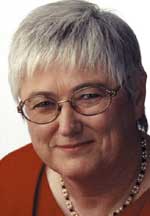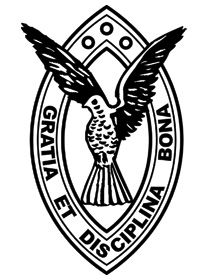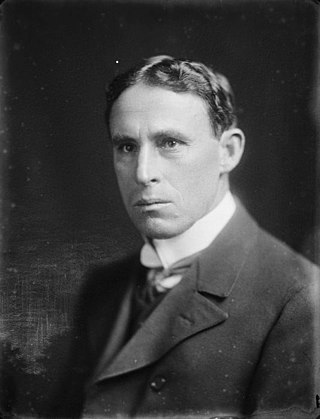Related Research Articles

Marian Leslie Hobbs is a New Zealand politician who was a Labour Member of Parliament from 1996 to 2008. She was initially a list MP and then represented the Wellington Central electorate. She served as Minister for the Environment and, later, as one of two Assistant Speakers of the House of Representatives. She represented the Dunedin constituency of the Otago Regional Council from 2019 to 2021.

The Otago Gold Rush was a gold rush that occurred during the 1860s in Central Otago, New Zealand. This was the country's biggest gold strike, and led to a rapid influx of foreign miners to the area – many of them veterans of other hunts for the precious metal in California and Victoria, Australia. The number of miners reached its maximum of 18,000 in February 1864.

Tini "Whetu" Marama Tirikatene-Sullivan was a New Zealand politician. She was an MP from 1967 to 1996, representing the Labour Party and was New Zealand’s first Māori woman cabinet minister. At the time of her retirement, she was the second longest-serving MP in Parliament, being in her tenth term of office. She was one of twenty holders of the Order of New Zealand, the highest honour of the country.
Tokomairiro High School is a co-educational, state secondary school in Milton, New Zealand, often simply known as "Toko".

Columba College is an integrated Presbyterian school in Roslyn, Dunedin, New Zealand. The roll is made up of pupils of all ages. The majority of pupils are in the girls' secondary, day and boarding school, but there is also a primary school for boys and girls in years 1–6.

Women's suffrage was an important political issue in the late-nineteenth-century New Zealand. In early colonial New Zealand, as in European societies, women were excluded from any involvement in politics. Public opinion began to change in the latter half of the nineteenth century and after years of effort by women's suffrage campaigners, led by Kate Sheppard, New Zealand became the first nation in the world in which all women had the right to vote in parliamentary elections.
Glen Ivan Denham is a New Zealand former basketball player. He is of Māori descent.

Thomas Dick was a 19th-century New Zealand politician. Originally a merchant, he worked in London and then represented his firm on Saint Helena for seven years. From there, he was sent to Dunedin as the company's representative; he emigrated with an extended family. He soon became involved in politics and was Superintendent of Otago Province from 1865 until 1867. Over a period of 24 years, he represented various Dunedin electorates in Parliament and was Colonial Secretary (1880–1884), Minister of Justice from 1881 to 1882, and Minister of Education from 1881 to 1884. A deeply religious man, he was involved in many church affairs. He was one of the founders of Hanover Street Baptist Church; the building is now classified as Category I by Heritage New Zealand.
Daisy Elizabeth Platts-Mills was a New Zealand medical doctor and community leader. She was the first woman medical doctor in private practice and served on numerous community organisations, particularly those concerned with the health and welfare of women and children.

Caroline Freeman was a teacher, school principal and owner, and the first female graduate of the University of Otago, New Zealand.

Jessie Lillian Buckland was a New Zealand photographer.
Graham Charles Fortune was a New Zealand diplomat and public servant. He served as New Zealand's High Commissioner to Australia from 1994 to 1999, and Secretary of Defence from 1999 until 2006.

Helen May is a New Zealand education pioneer. She has been an eloquent activist and academic in education, with a strong feminist focus on early childhood education. Her advocacy has been characterised by its focus on the rights and needs of children and teachers, expressed by an active and collaborative engagement with educational institutions, trade unions, the Ministry of Education and other government agencies.

Mary Allan Ronnie was a New Zealand librarian. She was New Zealand's first female National Librarian, from 1976 to 1981, and the first woman in the world to head a national library. Before becoming National Librarian she was head of Dunedin Public Library, and afterwards she served as Auckland City Librarian.

Barbara Angus was a New Zealand diplomat and historian who served as the country's ambassador to the Philippines between 1978 and 1981. She also worked for the Department of Internal Affairs as a research assistant in its War History Branch and later for the Department of External Affairs. Angus had stints as a diplomat in Singapore, Sydney, Kuala Lumpur and Washington, D.C., and authored a book on Katherine Mansfield and wrote two entries for the Dictionary of New Zealand Biography.

Malcolm Ross was a New Zealand journalist, mountain climber, and a war correspondent during the First World War. Born in Otago, he was employed by the Otago Daily Times from 1882 until 1889, when he began working for the Union Steam Ship Company. He resumed his career as a fulltime journalist in 1897, relocating to Wellington to report on parliamentary matters. Following the outbreak of the First World War, he went to German Samoa to cover its seizure by the New Zealand Military Forces. He was selected as the official war correspondent for New Zealand, reporting on the exploits of the New Zealand Expeditionary Force at Gallipoli and in Europe. His dispatches were criticised for their boring style and lack of timeliness although the latter was mainly as a consequence of constraints placed on him by the New Zealand Government. After the war he resumed his career as a member of the press gallery covering parliament until his retirement in 1926.

Carla Marja Olga Van Zon is a New Zealand retired artistic director. She worked on international opportunities for New Zealand artists at Creative New Zealand, before becoming artistic director of the New Zealand International Festival of the Arts in Wellington in 1996. From 2013 she was the Artistic Director of the Auckland Arts Festival, where she was responsible for commissioning works such as the opera The Bone Feeders. Van Zon has been responsible for supporting the careers of many New Zealand artists. She retired from the Auckland Arts Festival in 2017, following a diagnosis of kidney disease in 2016.
Glenys Patricia Arthur was a New Zealand neurologist. She campaigned for the rights of women medical practitioners, and was the first woman to serve on the executive of the New Zealand Medical Association, between 1983 and 1989. She was a co-founder of the Wellington branch of the New Zealand Medical Women's Association, and twice served as the association's national president. In 1989, she was elected to the Wellington Area Health Board.
Alison Ann Trotter was a New Zealand historian. She was the first woman to be appointed pro vice-chancellor of the University of Otago.
References
- 1 2 3 McCallum, Janet. "Forrestina Elizabeth Ross". Dictionary of New Zealand Biography . Ministry for Culture and Heritage . Retrieved 23 April 2017.
- ↑ Regnault, Claire (2021). Dressed : fashionable dress in Aotearoa New Zealand 1840 to 1910. Wellington, New Zealand: Te Papa Press. p. 359. ISBN 978-0-9941460-6-9. OCLC 1245592939.